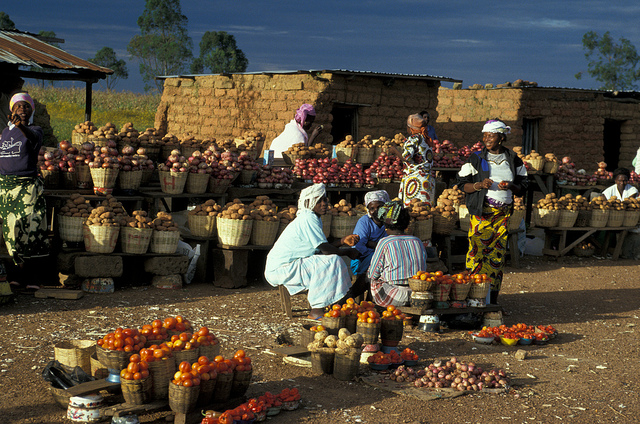By The North Journals Staff Writer
“Food Loss and Waste: A Global Challenge with Critical Implications for Africa and Cameroon” Trésor Daniel Mefire,
In Cameroon’s bustling markets, it’s not uncommon to see heaps of tomatoes rotting under the sun or bags of maize infested by pests. But behind these scenes of decay lies a deeper crisis—one that is contributing to hunger, economic hardship, and climate change. In his new report, researcher Trésor Daniel Mefire calls food loss and waste (FLW) “one of the most pressing global challenges of our time,” warning that its impact in Africa—and Cameroon specifically—is both staggering and avoidable.
Globally, the numbers are grim. One-third of all food produced is either lost or wasted annually, amounting to 1.3 billion metric tons. If FLW were a country, it would be the third-largest emitter of greenhouse gases, responsible for 8–10% of global emissions. Yet, the tragedy of this waste is most keenly felt in regions like Sub-Saharan Africa, where 320 million people are undernourished.
“Food loss in Africa is more about infrastructure than behavior,” Mefire notes. Unlike high-income countries where waste occurs at the consumer level, in Cameroon, more than 70% of food is lost before it even reaches the market.
According to the Ministry of Agriculture and Rural Development, Cameroon loses up to 40% of its maize during post-harvest stages, due to poor storage, pest infestations, and inadequate transportation. Cassava, a dietary staple, experiences post-processing losses of up to 72%. For perishables like tomatoes and leafy greens, spoilage rates can reach 40% in some areas due to transport damage and lack of refrigeration in urban centers such as Yaoundé and Douala.
These losses are not just numbers—they translate to severe economic pain. “Smallholder farmers lose as much as 15% of their income due to spoilage,” Mefire explains, “while consumers face higher food prices and reduced access to fresh produce.”
The environmental cost is equally severe. Rotting food emits methane, a greenhouse gas 25 times more potent than carbon dioxide. Meanwhile, water, land, and labor used to produce the wasted food are lost as well, exacerbating the ecological footprint of agriculture.
Mefire outlines several drivers behind Cameroon’s FLW dilemma. Chief among them is poor infrastructure—only 20% of rural roads are paved, and access to cold chain storage is minimal. Additionally, outdated storage practices, fragmented markets, poor packaging, and lack of training in post-harvest handling aggravate the crisis. “Many farmers still use traditional granaries, which are vulnerable to pests and mold,” he writes.
Yet, solutions are within reach. Mefire advocates for investments in cold chain logistics, community silos, hermetic storage bags, and solar-powered cooling systems. “These technologies can cut post-harvest losses by up to 50% for some crops,” he adds. The government’s National Development Strategy 2020–2030 has begun prioritizing such measures, though implementation remains slow.
Training programs are another key recommendation. Pilot efforts teaching proper maize storage using gas-tight containers have shown measurable success. Likewise, nutritional education and improved packaging could help reduce fruit and vegetable waste in urban centers.
To scale these interventions, Mefire calls for aligning national policy with global goals like Sustainable Development Goal 12.3, which aims to halve food loss and waste by 2030. He also urges expansion of agro-processing facilities to turn perishables into shelf-stable products, and the adoption of digital tools to connect farmers directly with buyers—reducing delays and spoilage.
“Food loss and waste in Cameroon is not just an agricultural issue—it’s a development issue, a climate issue, and a social justice issue,” Mefire concludes. “The time for decisive, coordinated action is now.”
As Cameroon wrestles with rising food insecurity and economic pressure, Mefire’s research makes clear: the country cannot afford to keep throwing its harvest away.
Key Takeaways:
- Up to 40% of food is lost in Cameroon post-harvest.
- Lack of cold storage and poor infrastructure are primary causes.
- Food waste contributes significantly to climate change and rural poverty.
- Proposed solutions include improved storage, farmer training, and agro-processing.
Source:
Mefire, T. D. Food Loss and Waste: A Global Challenge with Critical Implications for Africa and Cameroon, 2025. PDF Food Loss and Waste
